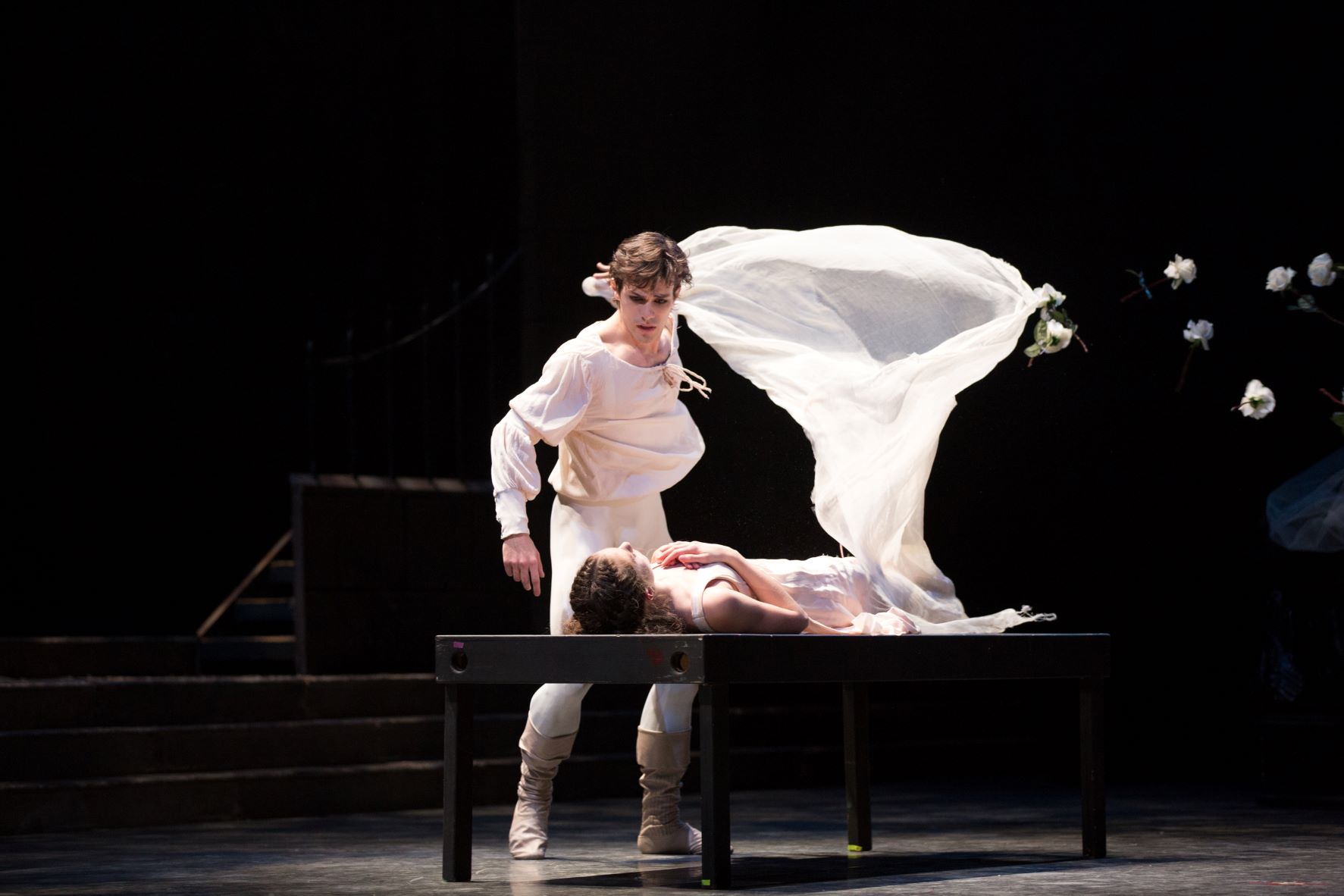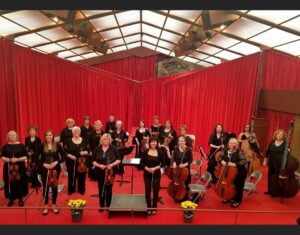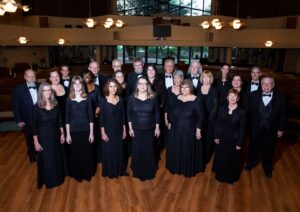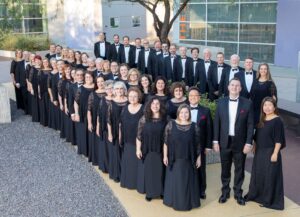Love is All Around

Writer Joseph J. Airdo
There are some stories that have touched each and every one of us in some way, shape or form. William Shakespeare’s classic cautionary tale of young love, intense passion and enduring tragedy — “Romeo and Juliet” — is one of them. Be it in the form of literature, cinema, play or SparkNotes, it is a story that is as imperishable as it is powerful and just as far-reaching.
Its societal prominence and importance is perhaps due, in part, to the emotional weight of its themes. Love, passion and tragedy are three things that are at the very core of the human experience. They are inherently tied to events that each and every one of us encounters from a very early age. They are also sensations that will follow us throughout our entire lives.
Many argue that Valentine’s Day is nothing more than a commercial holiday. However, something so significant to and deeply rooted in our lives as love is worthy of celebration — especially if viewed through a much wider lens, which is precisely what several of the Valley’s performing arts organizations have done with their programming this month.
They have taken a cue from Shakespeare, imbuing their productions with themes, material and methods that reflect a more comprehensive and all-encompassing interpretation of love.
In fact, Ballet Arizona has taken a page straight out of Shakespeare’s book and will bring “Romeo and Juliet” to the stage Feb. 10–13 at Symphony Hall, albeit in a way that enhances the story’s already robust emotions even further.
“A lot of people have read it in high school or saw the movie but seeing it performed live on stage in the form of dance is different because you are interpreting the story without words,” says Leslie Marquez, director of marketing for Ballet Arizona. “You are taking in the music and the movements and interpreting the love, passion and tragedy for yourself.
“You are getting a little bit of everything — all facets of human emotion played out right there on stage. As the ballet progresses, you can almost feel the energy of the dancers. Having that live human experience played out in front of you is unlike anything else.”
Marquez says that “Romeo and Juliet” provides Ballet Arizona’s dancers with the perfect opportunity to showcase their virtuosity and strength. And because it is accompanied by a score that is masterfully performed live by the Phoenix Symphony, the production pulls all senses into the experience.
“The Sergei Prokofiev score that is played while our dancers perform is extremely emotive,” she explains. “Just hearing the music really tugs at the heartstrings. There are often tears coming down people’s faces as they are leaving the theater because it is very emotional.”
Marquez adds that while “Romeo and Juliet” ultimately ends in tragedy, the romance represented within it is just as affecting.
“There is the remembrance of young love and what that feels like,” she says. “That is always fun to experience with a significant other. It is also great for a girlfriends’ night out. It is really just a special night out for anybody.”
Feel the Love



The Women’s Orchestra of Arizona aspires to offer the same with its Sunday, Feb. 6 concert at Ascension Lutheran Church in Paradise Valley. Affectionately titled “Feel the Love,” the concert will include Franz Lehár’s “Merry Widow Overture,” Ethel Smyth’s “Serenade in D” and Georges Bizet’s “Intermezzo” from “Carmen Suite No. 1,” as well as a medley of some of the greatest love songs of all time.
Noting that the concert is free to attend with a ticket from Eventbrite and will be followed by a reception that includes refreshments, Women’s Orchestra of Arizona conductor Cindy Petty acknowledges that love is a very complex subject.
“There is, of course, romance but there is also comedy and tragedy,” Petty says. “That is kind of where we came up with our theme of ‘Feel the Love’ because our selections will take you through everything that is involved in that kind of an event.”
Petty says that while “Merry Widow Overture” represents the humor in love, “Serenade in D” displays tenderness, warmth, comfort, power, strength and compassion — all of which are characteristics that, together, comprise a relationship.
Similar to “Romeo and Juliet,” Bizet’s 1875 opera “Carmen” is filled with tragedy but the selection chosen for the Women’s Orchestra of Arizona concert represents romance.
“The hero Don José falls in love with a woman who is nothing but trouble for him,” Petty explains. “He gets his heart broken. But in this piece, she is showing him compassion and caring — even though she knows that they will never be together. They have a moment when their relationship seems really stable and they feel very good about the love that they are sharing. It is a very romantic piece.”
Petty says that music expresses all of the different feelings involved in relationships in a way that words simply cannot. Therefore, concerts like “Feel the Love” provide people with an opportunity to not only sit close to someone they care about but also experience powerful, conversation-provoking feelings in a shared environment.
“Relationships are tough,” the conductor acknowledges. “Whether they have happy endings or do not, there is always still that powerful love component that people just cannot get away from. It really humanizes us because everybody wants to be cared for. But they also want to be independent.
“Music speaks words to your heart. And, when played well in a beautiful environment, it lends itself toward bringing people together. Then it gives reason for discussion afterward. You can talk about how you felt. Feelings are hard to discuss but music will bring that out to where it opens conversations, opens viewpoints and gives you a level playing field to be able to discuss them.”
Love from Sea to Sea



Arizona Masterworks Chorale music director Scott Youngs agrees with Petty’s assessment of music’s power and ability to accurately translate the difficult to define or describe experience that is love.
“Romantic love does not always give you the total picture,” Youngs says. “If you have been married for any length of time, you know that love changes. It grows and morphs into something unexpected. You do not always get the love that you planned on. You do not always get the love that you expected. Sometimes it is a complete surprise that you are even in love at all. Everyone has that experience of not a simple love, but a complex love — a surprise, a disappointment, a hope, a dream, a fulfillment. It changes over your lifetime.”
That is something that he aspires to capture through Arizona Masterworks Chorale’s “Love from Sea to Sea” concert, which will be performed Saturday, Feb. 12 at All Saints’ Episcopal Church in Phoenix and Sunday, Feb. 13 at Ascension Lutheran Church in Paradise Valley.
Youngs says that, like all of Arizona Masterworks Chorale’s concerts this season, “Love from Sea to Sea” will feature music by American composers.
The program will open with “Send in the Clowns” by Stephen Sondheim before moving through “A Red, Red Rose” and “When We Two Parted” by James Mulholland, “A Boy and a Girl” and “The Moon is Hiding in Her Hair” by Eric Whitacre, “Shoshone Love Song” by Roger Emerson, “Let My Love Be Heard” and “Good Night My Love” by Jake Runestad, “If Music be the Food of Love” by David Dickau, “Forever Gone” by Susan LaBarr and “I Am Not Yours” by David N. Childs.
“As we often discover, love finds us not in the ways or the timing that we might have planned,” Youngs says. “So in this program, we cover wistful love, the yearning for it, the love that did not come when we wanted it, the most romantic kinds of love, the tragic love, love lost and love found. There are so many touchstones in the texts and the music. That makes it perfect for Valentine’s week.”
Youngs adds that his goal with not just “Love from Sea to Sea” but all of Arizona Masterworks Chorale’s concerts is to present a simple, elegant choral sound in a beautiful setting with texts that will actually touch your heart.
“I think that everybody will find something that is emotionally touching,” the music director says. “When you present a broad spectrum of these texts that talk about love — love from different portions of your life, love amongst different people, love from a variety of different contexts — everybody finds some kind of an emotional touchstone. I think that it is a beautiful way to celebrate not just simple Valentine’s love but the greater picture.”
The Many Faces of Love



The greater picture is also something that Sonoran Desert Chorale hopes to capture through its spring concert.
Sonoran Desert Chorale artistic director Carric Smolnik says that “The Many Faces of Love” — which will be performed Saturday, Feb. 26 at First United Methodist Church in Mesa and Sunday, March 6 at La Casa De Cristo Lutheran Church in Scottsdale — features songs that reflect themes of love and rebirth but in a way that extends beyond just romance.
“There are so many other aspects and areas of love,” Smolnik explains. “So, for this program, I collected songs and divided them into little subsets from which we could get different perspectives about different parts of life that deal with love. Each of the subsets gives a little bit of something to which I think almost any audience member can really relate.”
“The Many Faces of Love” will, of course, include selections that represent youthful love and the sense of excitement that comes with it but the concert will also reach into love of the Divine, celebrating the idea of a higher power and God, as well as love of music. It will also represent love of country.
“We will sing the national anthem but I also wanted to include the sense of patriotism that people from other countries and cultures who are here and might be attending feel for their own country,” Smolnik says. “So I selected Z. Randall Stroope’s ‘Homeland.’”
For romantic love, Smolnik selected Eric Whitacre’s “Five Hebrew Love Songs,” which features very reflective, intimate and contemplative text about the care that one person takes of another. The final selections will represent love of humankind.
“I felt this pull to have some pieces talking about helping and supporting humanity because, as everyone is acutely aware, we are still in the throes of a pandemic,” Smolnik says. “We have had our lives flipped upside down and we have polarizing things happening left and right as well as hardship and heartache.”
One of the pieces Smolnik selected to represent love of humankind is Alf Houkom’s “Rune of Hospitality,” which reminds us that, no matter our circumstances, we have within us the ability to reach out and touch someone else who might be struggling.
The artistic director adds that the dualism between the youthful love and the romantic love subsets is especially potent — particularly on date night.
“Someone who is just starting out in their relationship will be able to identify with some of the fun and colorful songs in the youthful love subset,” he explains. “But for someone who is in a longer-term, more mature relationship, that is going to be nostalgia for them as they remember the beginning days of their relationship.
“Then the romantic subset — especially Eric Whitacre’s ‘Five Hebrew Love Songs,’ which features words that speak to so many people on a very deep, connective level — will remind them of one another and the reasons that they are together.”
Experience
Romeo and Juliet // Feb. 10–13 // See website for times // Symphony Hall // 75 N. Second St., Phoenix // See website for price // balletaz.org
Music
Women’s Orchestra of Arizona: Feel the Love // Sunday, Feb. 6 // 3 p.m. // Ascension Lutheran Church // 7100 N. Mockingbird Lane, Paradise Valley // Free // womensorchestraarizona.com
Music
Arizona Masterworks Chorale: Love from Sea to Sea // Saturday, Feb. 12 // 7:30 p.m. // All Saints’ Episcopal Church // 6300 N. Central Ave., Phoenix // Sunday, Feb 13 // 3 p.m. // Ascension Lutheran Church // 7100 N. Mockingbird Lane, Paradise Valley // $15+ // arizonamasterworks.com
Music
Sonoran Desert Chorale: The Many Faces of Love // Saturday, Feb. 26 // 7:30 p.m. // First United Methodist Church // 15 E. First Ave., Mesa // Sunday, March 6 // 3 p.m. // La Casa De Cristo Lutheran Church // 6300 E. Bell Road, Scottsdale // $18+ // 480-305-4538 // sonorandesertchorale.org

